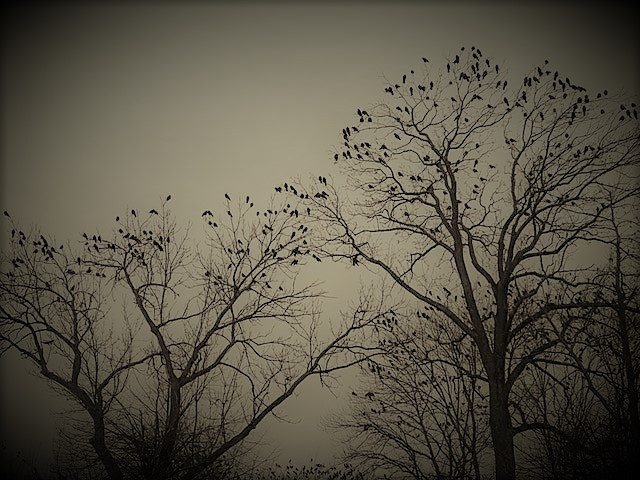Do you ever turn to face the sea along the craggy Oregon Coast as the waves churn, thick clouds hovering overhead as wind whips your hair around your face, and imagine you’re in a nineteenth-century gothic novel—or do you not dream of the dreary? If you’re like me, you’re constantly on the lookout for writing inspiration, and you love a good gothic tale. Despite what Merriam-Webster says about the genre, gothic literature is more than just eerie settings and violent incidents: it’s a state of mind, a feeling, an uneasy dread that stems from examining fear and its myriad origins. From the melancholic to the morbid, Portland and the surrounding area is rife with inspiration to get you in the gothic mood.
When I first moved to the Portland area a few years ago, I was affected at once by the dreary weather: the gray days of drizzle chilled me to the core—and I was delighted. My senses were heightened from the sight of dark skies and swaying branches, the sound of wind and rain, the smell of damp, fresh earth after a storm, so potent I could almost taste it, and the feel of it all on my skin. With these heightened senses came heightened emotions, and a heightened desire to write.
One of the first inspirational places I visited was Pittock Mansion. The sprawling, manicured grounds with fragrant flowers immediately recalled Manderley in its prime. As I descended the staircase, my footsteps echoing off the marbled floor, hand grazing the smooth wooden banister, I imagined how the new Mrs. de Winter (Rebecca) must have felt making her grand entrance to that ill-fated party, unaware that the sinister Mrs. Danvers awaited her humiliation with wicked glee at the top of the stairs. The furniture and décor of a bygone era reminds me of time passing, of my own mortality. Oh, and did I mention it is believed to be haunted? What images and characters might it conjure for you?
Not far from the mansion, off a walking trail in the woods, lies the remnants of a crumbling stone structure called the Witch’s Castle. Ruins are often present in gothic literature, at times representing the downfall of a once powerful person suffering a fate we’re fortunate enough to just be reading about in fiction. Imagine what misfortune might have befallen the former inhabitant of these ruins? What supernatural element will you include in your story? Imagine your character encountering it here for the first time. Alone. In the dark. Feel the rough stones, smell the peaty soil. Did you hear the snap of that twig? Is someone there?
I once walked the property of the Edgefield. The hotel, winery, and distillery was once a poor farm, housing the area’s impoverished from its construction in 1911 until it was abandoned in the 1980s. Many of the residents remain on the property—buried in unmarked graves, the thought of which was enough to make me shiver on an unusually warm day. The red brick façade with its creeping, climbing greenery could be the setting of any number of gothic tales. At times, it made me think of Thornfield Hall, the unhappy home of Mr. Rochester (Jane Eyre). But on the inside, the darkness, the heavy wooden beams and walls, the allegedly haunted halls, were more reminiscent of a Poe tale. Make your way to the tasting room and ponder what stories they’d tell if those walls could talk (or what might be entombed within them). While a cask of Amontillado may not be on the menu, you might swirl, sniff, and sip a glass of Black Rabbit, a delicious red blend (not at all like Amontillado, but still bloody good) and let your imagination wander.
Finally, if the cliffs of the Oregon Coast remind you of those at Whitby, where Mina and Lucy first encounter the titular vampire in Dracula, you might also be inspired to visit the Lone Fir Pioneer Cemetery, or any cemetery, and walk among the graves as they do, romanticizing the macabre in true gothic tradition. Let your senses go to work fueling your imagination. And while you’re at it, jot down some names you come across on the headstones, the earliest of which is dated 1846—your characters will thank you.
When you finish your gothic novel, or manuscript-length collection of short stories, submit them to Ooligan Press for consideration!


Maria Vigil
Excellent points
Maria Vigil
Excellent points